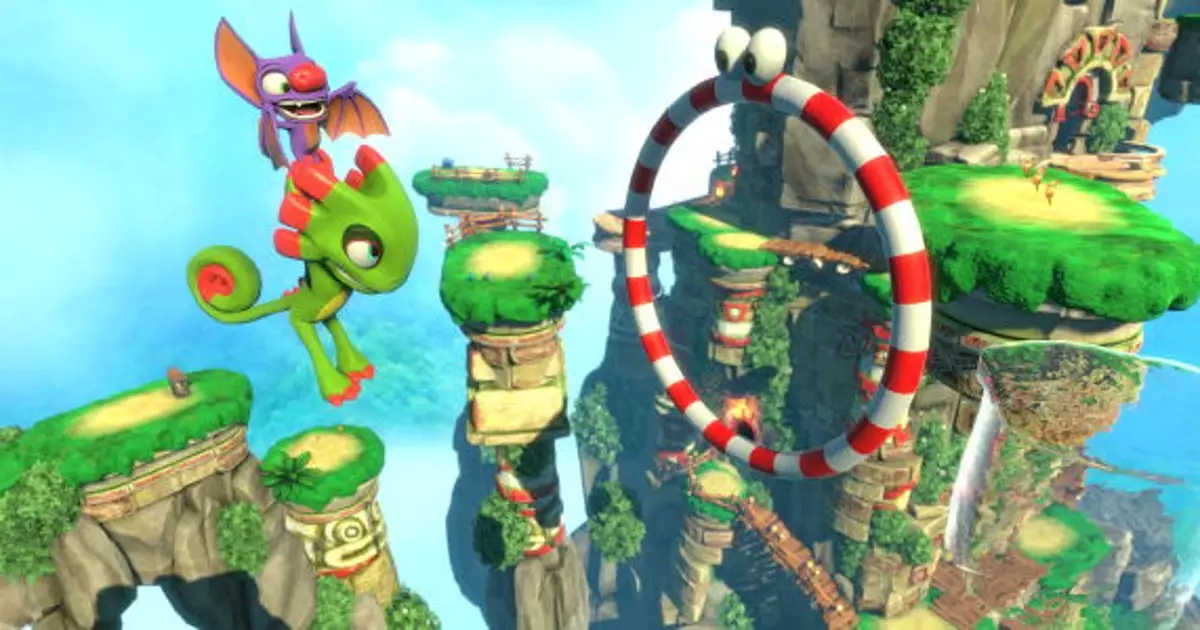The recent announcement from Playtonic Games regarding staff layoffs has sent ripples through the gaming community, sparking discussions about the evolving dynamics within the industry. Playtonic, a studio formed from the creative minds behind the nostalgic platformer Banjo-Kazooie, now finds itself at a crossroads, grappling with what it describes as a “profound change” in game development and financing. This statement raises questions about the underlying factors contributing to such drastic measures, reflecting broader industry trends that could have far-reaching implications for developers and gamers alike.
The rise of high-budget, service-oriented games appears to overshadow traditional genres, particularly the beloved mascot platformers that Playtonic champions. The ability to generate recurring revenue through live service models has redefined how companies strategize, often at the expense of smaller, niche titles. It seems that the industry is now more willing than ever to prioritize profit over creativity, leaving veteran studios like Playtonic in uncertain waters.
The Human Cost of Change
The emotional weight of these layoffs cannot be understated. In their heartfelt social media post, Playtonic acknowledged the talent and dedication of their departing team members, reiterating that these decisions do not reflect the capabilities or commitment of those affected. The repercussions of such decisions are felt deeply, not just by the individuals directly impacted but also by the remaining staff and Fans who have formed a connection to the studio’s unique offerings.
Anni Valkama, the brand manager at Playtonic, took to LinkedIn to commend the remarkable skills of those who have left. Her appeal for hiring opportunities for these professionals underscores a fundamental truth of the industry: talented individuals are often displaced during times of crisis, regardless of their previous contributions. It raises the uncomfortable question—how many talented individuals are left to navigate an increasingly cutthroat environment where creative ambition is constantly challenged by market demands?
Reassessing the Future of Gaming
Playtonic’s journey has been far from conventional. While they experienced notable success with titles like Yooka-Laylee and the Impossible Lair, the challenges they now face highlight an urgent need for the entire industry to reassess its trajectory. A divergent focus on blockbuster titles and service games has created an environment where innovation is often stifled by economic considerations. For studios that dare to tread the path of creativity rather than commercialism, the stakes are higher than ever.
As we reflect on Playtonic’s trajectory, it is evident that the studio has made commendable efforts to adapt. The establishment of Playtonic Friends in 2021 aimed at fostering collaboration within the indie sector demonstrates a commitment to innovation and community. Yet, the recent layoffs indicate that even this strategy may not provide sufficient buffer against the volatility of the current gaming market. If Playtonic and similar studios wish to survive, they must embrace a reluctant flexibility, continually evolving in accordance with the shifting sands of gaming culture and audience expectations.
Beyond Nostalgia: The Path Ahead
While nostalgia has powered many indie games to success, it is becoming increasingly apparent that studios must seek out new narratives and modes of engagement. Playtonic’s initial efforts were grounded in a love for platformers, yet to remain relevant, they must evolve beyond this affectionate tether to the past. As other developers rush to fill the void left by traditional game concepts, Playtonic’s mission should be to cultivate new, innovative experiences that challenge players and redefine the genre.
Opinion pieces often posit that change is the enemy of creativity, yet a right approach can yield fresh opportunities. Playtonic could dive deeper into collaboration, engage their community more intimately, and adapt their narratives to reflect modern themes and concerns. Rather than getting swallowed up by the commercial decline of their primary genre, they hold the potential to rejuvenate and surprise, paving the way for a new era of games that hold both artistic merit and commercial viability.
The time for Playtonic to oscillate between its nostalgic roots and innovative futures is now. It’s a daunting challenge, undoubtedly, but one that could ultimately redefine their legacy in an ever-evolving industry. The road ahead may be fraught with uncertainty, yet within that uncertainty lies the bright possibility of rebirth and renewed creativity.

